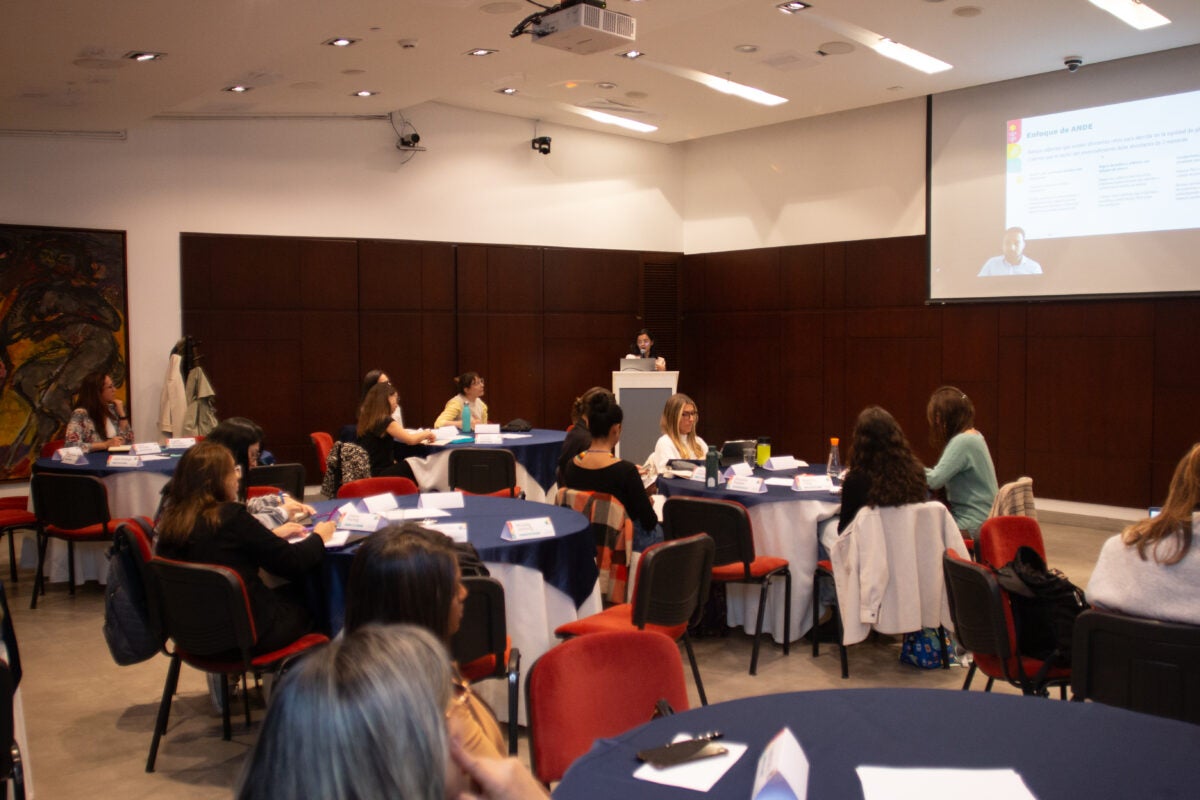This content is also available in: Español

The pioneering initiative seeks to transform power dynamics and accelerate gender equity-focused investment.
Gender equity in the financial sector is not just a matter of social justice but also an economic necessity.
According to Credicorp, in Colombia, only 16% of women fully participate in the financial sector. In Latin America, 95.6% of men have access to financial services, compared to 88.7% of women, according to CAF – Development Bank of Latin America and the Caribbean, and Banca de las Oportunidades.
In this context, the Aspen Network of Development Entrepreneurs (ANDE), a global leader of organizations promoting entrepreneurship in developing economies, has implemented the ARISE Workshop: Translating Gender and Finance in Colombia to foster a more equitable financial system that recognizes and mitigates gender biases.

The international specialized training program enhances the capacities of gender and finance experts, equipping them with tools to integrate gender perspectives in decision-making and capital allocation, thereby restructuring power dynamics.
ARISE was meticulously designed to bridge the gap between the worlds of finance and gender equality. This workshop educates and empowers financial leaders with inclusive investment strategies and enables gender specialists to understand and utilize financial systems for their goals. We are setting a precedent for how financial systems can and should advance gender equality,” —Lina Rossi, Director of ANDE’s Andean Chapter.
This challenge spans Latin America, where, according to IFC—International Finance Corporation figures, the financing gap for women entrepreneurs reaches $93 billion. Additionally, according to The Boston Consulting Group, women control an estimated $40 trillion in global purchasing power, representing an underutilized market and a significant growth opportunity.
In this scenario, ARISE addresses a critical gap in the financial industry by improving the capabilities of gender and finance experts and providing them with tools to integrate gender perspectives in decision-making and capital allocation.
“At ANDE, we believe that Small Growing Businesses are fundamental to addressing social challenges such as gender equality and social justice. We are committed to closing gaps in the entrepreneurial ecosystem, generating knowledge to understand women’s participation, and developing sector capabilities to promote investments and training services for women-led businesses,” emphasized Lina Rossi.
The participation of 27 organizations, including UN Women, ACUMEN, SVX, Core Women, and Save the Children, along with executives, financial analysts, and sector leaders, demonstrates a growing commitment to building a more inclusive and equitable financial sector. This effort is not only a step towards social justice but also a smart strategy to drive sustainable economic growth in Colombia and throughout Latin America.

Learn more about our work on gender in Latin America.
You might also be interested in: Our Andean Chapter Director, Lina Rossi Idarraga, spoke with Revista C-level about the importance of connecting these two worlds and ANDE’s efforts in Latin America to close gender gaps in the entrepreneurial ecosystem. Watch the interview (Spanish with auto-generated translation captions).
About ARISE
With the support of Global Affairs Canada, the Advancing Research and Investment Standards for Equity (ARISE) Project is a three-year initiative aimed at accelerating the adoption of gender analysis and investment expertise, ultimately improving gender equality outcomes for women, girls, and non-binary individuals in emerging markets.
In collaboration with Criterion Institute and 2X Global, we aim to expand the number of women’s rights and civil society organizations trained to work alongside investors in the fields of Gender Lens Investing (GLI) and innovative finance, support donor capacity to promote these best practices, and direct the increasing flow of capital into the GLI field towards investments more likely to achieve gender equality and development outcomes. Learn more.

